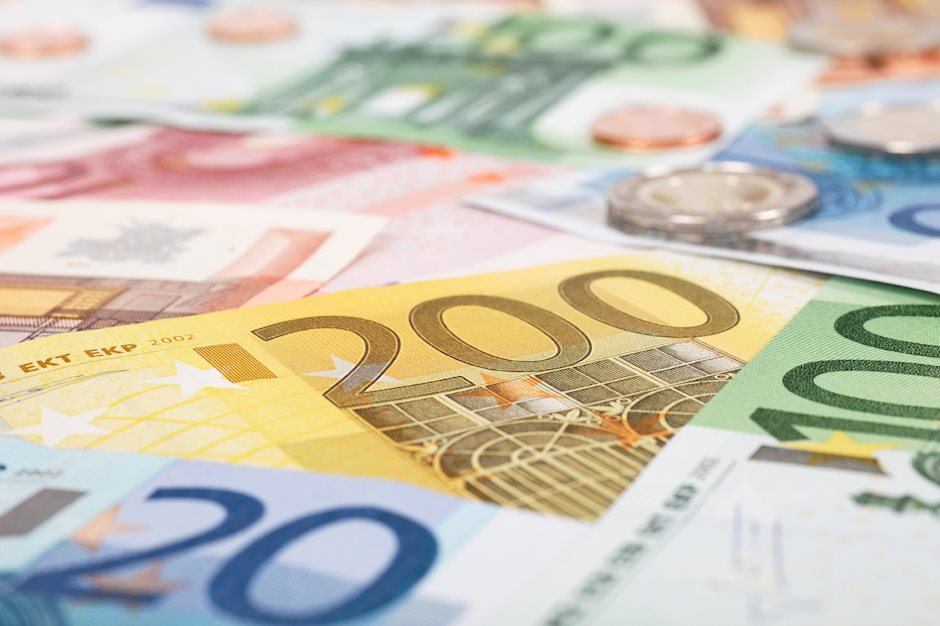EUR/USD hovers around 1.0750 with negative bias amid Trump trades
- EUR/USD may depreciate further as the US Dollar (USD) receives support from Trump trades.
- Republicans to gain significant authority to push through an expansive agenda focused on tax and spending cuts.
- The ECB may consider cutting rates to near zero by 2025 if Europe's economic growth falters due to Trump's tariffs.

EUR/USD holds ground after depreciating around 2% in the previous session, trading near 1.0740 during the Asian session on Thursday. The downside risk for the EUR/USD pair seems possible as the US Dollar (USD) may receive support from Trump trades following the victory of Republicans in the US election.
Donald Trump's Republicans appeared poised to potentially take control of both chambers of Congress, granting them significant authority for the first time in eight years to push through an expansive agenda focused on tax and spending cuts, energy deregulation, and border security.
According to Reuters, Republican lawmakers and aides indicated that early priorities would likely include extending Trump's 2017 tax cuts, funding the US-Mexico border wall, cutting unspent funds allocated by Democrats, dismantling the Department of Education, and limiting the powers of agencies such as the Consumer Financial Protection Bureau.
However, the US Dollar Index (DXY), which measures the value of the US Dollar against its six major peers, retreats from a four-month high of 105.44, recorded on Wednesday. The DXY trades around 104.90 amid a downward correction in US Treasury yields. US yields surged to their highest levels since July to 4.31% and 4.47%, respectively, on Wednesday.
Traders anticipate the US Federal Reserve (Fed) will lower its benchmark interest rate by 25 basis points at its November meeting on Thursday. The CME FedWatch Tool indicates a 98.1% probability that the Fed will make this quarter-point rate cut in November, showing strong market consensus for a modest reduction this week.
If Europe's growth stalls due to Trump's tariffs, the European Central Bank (ECB) may be forced to take aggressive action, potentially cutting rates to near zero by 2025, according to Euronews. Markets expect the ECB to lower the Deposit Facility Rate by the typical 25 basis points (bps) in December.
EU-based market data is relatively sparse this week. Pan-EU Retail Sales figures are scheduled for release on Thursday, with the EU leaders’ summit concluding on Friday. ECB President Lagarde is also set to make a follow-up appearance on Saturday.
Euro FAQs
The Euro is the currency for the 19 European Union countries that belong to the Eurozone. It is the second most heavily traded currency in the world behind the US Dollar. In 2022, it accounted for 31% of all foreign exchange transactions, with an average daily turnover of over $2.2 trillion a day. EUR/USD is the most heavily traded currency pair in the world, accounting for an estimated 30% off all transactions, followed by EUR/JPY (4%), EUR/GBP (3%) and EUR/AUD (2%).
The European Central Bank (ECB) in Frankfurt, Germany, is the reserve bank for the Eurozone. The ECB sets interest rates and manages monetary policy. The ECB’s primary mandate is to maintain price stability, which means either controlling inflation or stimulating growth. Its primary tool is the raising or lowering of interest rates. Relatively high interest rates – or the expectation of higher rates – will usually benefit the Euro and vice versa. The ECB Governing Council makes monetary policy decisions at meetings held eight times a year. Decisions are made by heads of the Eurozone national banks and six permanent members, including the President of the ECB, Christine Lagarde.
Eurozone inflation data, measured by the Harmonized Index of Consumer Prices (HICP), is an important econometric for the Euro. If inflation rises more than expected, especially if above the ECB’s 2% target, it obliges the ECB to raise interest rates to bring it back under control. Relatively high interest rates compared to its counterparts will usually benefit the Euro, as it makes the region more attractive as a place for global investors to park their money.
Data releases gauge the health of the economy and can impact on the Euro. Indicators such as GDP, Manufacturing and Services PMIs, employment, and consumer sentiment surveys can all influence the direction of the single currency. A strong economy is good for the Euro. Not only does it attract more foreign investment but it may encourage the ECB to put up interest rates, which will directly strengthen the Euro. Otherwise, if economic data is weak, the Euro is likely to fall. Economic data for the four largest economies in the euro area (Germany, France, Italy and Spain) are especially significant, as they account for 75% of the Eurozone’s economy.
Another significant data release for the Euro is the Trade Balance. This indicator measures the difference between what a country earns from its exports and what it spends on imports over a given period. If a country produces highly sought after exports then its currency will gain in value purely from the extra demand created from foreign buyers seeking to purchase these goods. Therefore, a positive net Trade Balance strengthens a currency and vice versa for a negative balance.
Author

Akhtar Faruqui
FXStreet
Akhtar Faruqui is a Forex Analyst based in New Delhi, India. With a keen eye for market trends and a passion for dissecting complex financial dynamics, he is dedicated to delivering accurate and insightful Forex news and analysis.

















